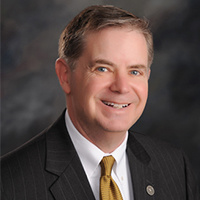Emmett Misdemeanor Lawyer, Kansas
Not enough matches for Emmett Misdemeanor lawyer.
Below are all Emmett Criminal lawyers.
Joseph P. Huerter
✓ VERIFIEDDivorce & Family Law, Criminal, Personal Injury, Car Accident, Wills & Probate
Joe is a trial lawyer. He brings his litigation skills to a variety of matters, including the representation of people injured in automobile and motor... (more)
Thomas Dean Addair
Criminal, DUI-DWI
Thomas Addair graduated from Manhattan High School and Kansas State University. He attended law school at the University of Kansas. This is where Tom ... (more)
Bentson R. Oleen
✓ VERIFIEDDivorce & Family Law, Criminal, Accident & Injury, Estate, Real Estate
We provide representation in family law, personal injury, criminal and estate law.
If you need an attorney that will always protect your best interests, call the Oleen Law Firm today. The Oleen Law Firm is committed to defending our ... (more)
James Joseph Rosenthal
Age Discrimination, Animal Bite, Criminal, Bad Faith Insurance
Status: In Good Standing
FREE CONSULTATION
CONTACTJoni C. Thadani
Adoption, Alimony & Spousal Support, Child Support, Criminal
Status: In Good Standing
FREE CONSULTATION
CONTACTJoshua Kyle Douglass
Motor Vehicle, State and Local, Divorce, Criminal
Status: In Good Standing Licensed: 17 Years
Christopher E. Biggs
Government, Criminal, Civil & Human Rights
Status: In Good Standing Licensed: 41 Years




